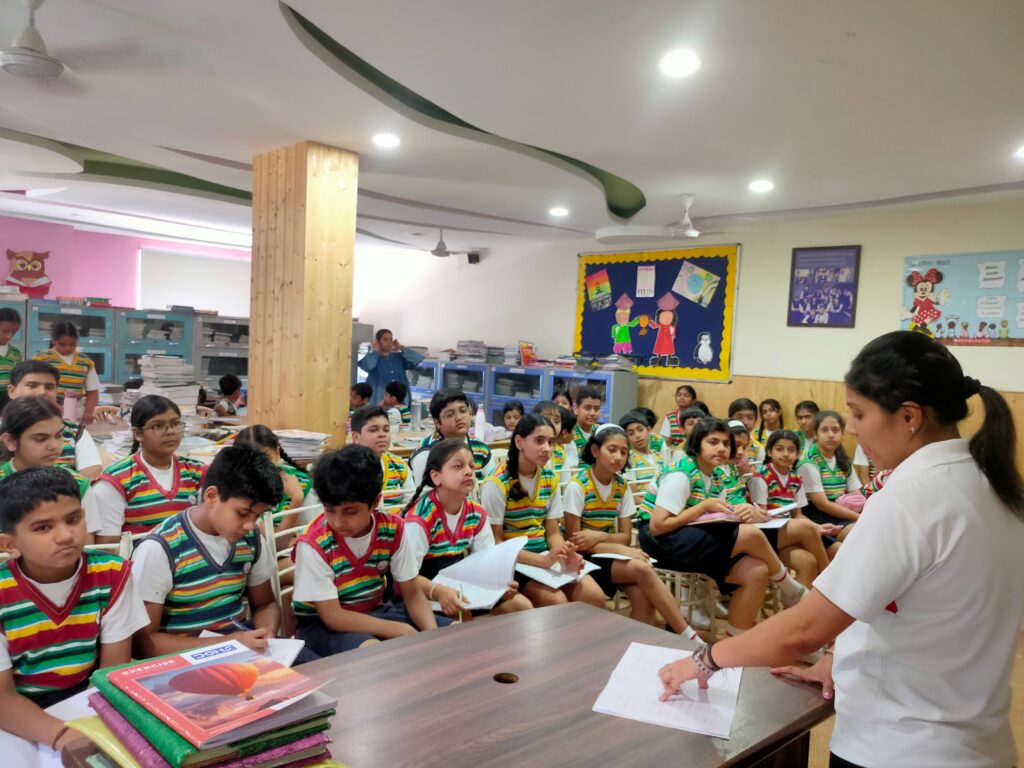Behind every confident and successful student is a team of dedicated parents. While teachers shape knowledge within classrooms, parents play a foundational role in shaping a child’s attitude towards learning, behavior, and motivation. In today’s dynamic educational environment, the involvement of parents has become more crucial than ever. At The Bharat School, recognized as a Best CBSE School in Panchkula, we understand that education is most effective when parents and teachers work hand in hand to nurture each child’s potential.
Why Parental Involvement Matters
Learning is not confined to school hours; it begins at home and continues throughout the day. A child’s first teachers are their parents, and the values, habits, and behaviors learned at home often lay the groundwork for academic success.
Research consistently shows that children whose parents are actively involved in their education tend to:
- Perform better academically
- Have improved social skills
- Show greater confidence and motivation
- Develop a love for lifelong learning
This involvement doesn’t necessarily mean helping with homework every night. It’s about being present, supportive, and engaged in your child’s overall growth—intellectually, emotionally, and morally.
Ways Parents Can Support Their Child’s Learning
Here are some effective and practical ways parents can contribute meaningfully to their child’s learning journey:
1. Create a Positive Learning Environment at Home
A well-lit, quiet space dedicated to reading and studying encourages consistency and focus. Ensure that your child has access to age-appropriate books, stationery, and learning materials. Limit distractions like television and mobile phones during study time.
2. Encourage Curiosity and Questions
Children are naturally curious. Instead of brushing off their endless “whys,” encourage them to ask more questions and explore answers together. This approach builds confidence, enhances critical thinking, and strengthens parent-child bonds.
For example, if your child asks, “Why does the sun rise in the east?” – don’t just give an answer. Show them a video, read a book together, or demonstrate using a globe. Learning becomes fun and memorable when shared.
3. Be a Role Model
Children imitate what they see. If parents value education, read regularly, and discuss current affairs or science facts at the dinner table, children will develop the same habits. Demonstrating a positive attitude toward learning teaches children that education is not just a task—it’s a lifelong journey.
4. Stay Connected with the School
At The Bharat School, we encourage open communication between teachers and parents. Attend PTMs (Parent-Teacher Meetings), follow your child’s progress, ask for feedback, and discuss strategies for improvement. When children see their parents and teachers working as a team, they feel more secure and motivated.
5. Support Emotional and Social Learning
Education is more than just academics. Children must learn empathy, resilience, respect, and communication. Parents can nurture these skills through storytelling, role modeling, open conversations, and even playful situations like group games or chores.
Praise efforts more than results. For instance, instead of saying, “Good job on scoring 95%,” say, “I’m proud of how hard you studied for that test.” This approach builds self-worth and encourages effort-based learning.
6. Limit Screen Time and Encourage Real-World Learning
While technology has its advantages, excessive screen time can reduce creativity, concentration, and physical activity. Instead, encourage your child to:
- Play outside
- Visit museums or science parks
- Engage in hobby classes like music, dance, or sports
- Help with cooking or gardening at home
These experiences enhance problem-solving and life skills that no textbook can teach.
7. Read Together, Learn Together
One of the most powerful habits a parent can build with their child is reading. Reading together boosts vocabulary, comprehension, and imagination. Ask questions while reading stories: “What do you think will happen next?” or “What would you do if you were in this situation?” This turns passive reading into an interactive learning session.
The Bharat School’s Approach to Parent Involvement
At The Bharat School, we treat parents as active partners in our mission to nurture well-rounded, responsible, and confident individuals. We regularly organize:
- Workshops and orientation programs for parents
- Interactive sessions to share home-learning strategies
- Cultural and educational events where parents participate with their children
- Communication tools like WhatsApp groups, school apps, and newsletters to stay informed
Our goal is to build a transparent and collaborative ecosystem where both educators and parents support each other to bring out the best in every child.
Conclusion
A child’s learning journey is a shared responsibility. When schools and families work together, children thrive. Whether it’s helping with homework, encouraging hobbies, or simply showing interest in their day-to-day school life, every small act by a parent has a lasting impact on a child’s development.
At The Bharat School, we believe that parents are not just supporters but partners in education. Let’s work hand-in-hand to create a future where children feel inspired, empowered, and prepared for the world.
